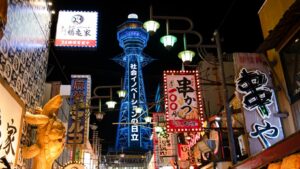Japan captivates travelers with its unique blend of tradition and modernity. From the bustling streets of Tokyo to the serene temples of Kyoto, every corner offers a new adventure waiting to be discovered. However, navigating this vibrant country can be overwhelming for first-time visitors. That’s where a few savvy travel tips Japan come into play.
Understanding local customs, transportation options, and essential etiquette can enhance the experience and ensure a smooth journey. Whether it’s mastering the art of sushi etiquette or knowing the best times to visit popular attractions, these insights can turn a good trip into an unforgettable one. With the right preparation, exploring Japan becomes not just a vacation but a deep dive into a rich culture.
Travel Tips Japan
 Purchasing a Japan Rail Pass provides extensive train travel throughout the country. This pass offers access to most Shinkansen (bullet trains) and regional lines, making it cost-effective for long-distance journeys.
Purchasing a Japan Rail Pass provides extensive train travel throughout the country. This pass offers access to most Shinkansen (bullet trains) and regional lines, making it cost-effective for long-distance journeys.
Understanding local customs ensures respectful interactions. Bowing is a common greeting, while removing shoes in homes and certain restaurants is customary. Awareness of these practices enhances cultural immersion.
Learning basic Japanese phrases improves communication. Simple phrases like “arigatou” (thank you) and “sumimasen” (excuse me) show respect and willingness to engage. Signage in English is prevalent, but locals appreciate the effort to speak their language.
Navigating Japan’s transportation system is straightforward. Trains and buses are punctual and efficient. Downloading a transportation app simplifies route planning, allowing travelers to easily find their way around major cities.
Utilizing cash is often preferred for many transactions. While credit cards are becoming more widely accepted, small shops and restaurants may only accept cash. Keeping yen on hand ensures smooth purchases.
Respecting eating etiquette enriches the dining experience. Avoid pointing with chopsticks and don’t stick them upright in rice, as it resembles funeral rites. Enjoying meals quietly and saying “itadakimasu” before eating expresses gratitude.
Staying connected is essential for navigation and communication. Purchasing a SIM card or portable Wi-Fi device supports continuous internet access, enabling travelers to easily find directions and restaurant reviews.
Understanding tipping customs helps avoid cultural faux pas. Tipping is not common in Japan and can be seen as rude in many establishments. Exceptional service is typically included in the total price.
Embracing local experiences fosters deeper appreciation. Participating in tea ceremonies, staying in ryokans (traditional inns), or exploring onsen (hot springs) introduces rich aspects of Japanese culture. Each experience adds a unique layer to the overall trip.
Navigating Transportation
Japan offers a highly efficient and reliable transportation system that enhances the travel experience. Travelers can choose from various public transport options that seamlessly connect cities and regions.
Public Transport Options
- Trains: Trains provide the backbone of Japan’s public transport. Shinkansen, or bullet trains, connect major cities at high speeds, while local trains facilitate short-distance travel. Timeliness is crucial, with most trains running on schedule.
- Subways: Subways operate extensively in urban areas like Tokyo and Osaka. They offer a convenient way to navigate bustling city centers. Clear maps and signage make it easy to use, even for non-Japanese speakers.
- Buses: Buses complement train services, especially in rural areas where train access may be limited. Local buses adhere to fixed routes and schedules. Look for information at bus stops or on apps for route details.
- Taxis: Taxis offer door-to-door convenience. While fares may be higher, they are metered and provide a reliable option for late-night travel or areas without public transport.
- Japan Rail Pass: The Japan Rail Pass provides unlimited access to most trains, including Shinkansen, for a set number of days. This pass is available exclusively to foreign tourists and offers significant savings for long-distance travel.
- Regional Passes: Regional rail passes cover specific areas or transport companies, offering flexible options for exploring particular regions. Consider purchasing these passes for targeted travel in cities like Hokkaido or Kyushu.
- Validity Period and Reservations: Passes come with different validity periods—7, 14, or 21 days. Some trains, especially popular Shinkansen routes, require seat reservations, which are typically free with a rail pass.
- Purchasing Options: Travelers can buy rail passes before arriving in Japan or at designated train stations. Online booking is available, simplifying the process for visitors.
Cultural Etiquette
Understanding cultural etiquette in Japan enhances the travel experience significantly. Attention to local customs plays a crucial role in building respectful and meaningful interactions.
Dos and Don’ts
- Do Bow When Greeting: Bowing shows respect in Japanese culture. It’s common during greetings, farewells, and expressions of gratitude.
- Do Remove Shoes Indoors: Remove shoes when entering someone’s home, traditional ryokans, or certain temples. Use the provided indoor slippers when available.
- Do Use Both Hands When Giving or Receiving: Present and accept items, such as gifts or business cards, with both hands. This shows appreciation and respect.
- Don’t Talk Loudly on Public Transport: Maintain a quiet demeanor on trains and buses. Silence is valued in public settings.
- Don’t Point at People or Things: Pointing is considered impolite. Instead, use an open hand to gesture or indicate something.
- Don’t Stick Chopsticks Upright in Rice: This act resembles a funeral custom and is seen as disrespectful. Place chopsticks on their holder when not in use.
- Greetings: Use formal phrases such as “Konnichiwa” (Hello) or “Arigatou” (Thank you) when greeting people. Politeness is important in everyday interactions.
- Dining Etiquette: Wait for everyone at the table before saying “Itadakimasu” before meals and “Gochisousama” afterwards to show gratitude.
- Gift Giving: Present gifts beautifully wrapped, as presentation matters in Japan. Avoid giving even-numbered items, which are associated with funerals.
- Bathing Practices: Before entering a communal bath, wash and rinse the body thoroughly. This practice maintains cleanliness in hot springs (onsen) and public baths.
- Handling Money: Use a tray for money when paying, especially in shops. Cashiers prefer not to touch money directly, reflecting a respect for cleanliness.
Where to Stay
Travelers can find diverse accommodations in Japan, catering to various preferences and budgets. Options range from traditional ryokans to modern hotels, each offering unique experiences.
Types of Accommodations
- Hotels: Tokyo features numerous international and local hotel chains. These establishments provide modern amenities and are often situated near public transportation.
- Ryokans: Ryokans offer traditional Japanese lodging experience. Guests enjoy tatami-matted rooms and futons, along with kaiseki meals, highlighting local cuisine.
- Capsule Hotels: Capsule hotels present a unique way to experience Japan’s efficiency. They provide compact sleeping pods, ideal for solo travelers or budget-conscious visitors.
- Hostels: Hostels appeal to younger travelers, offering shared dormitory-style accommodations. Many hostels feature communal areas that foster interaction and socializing.
- Vacation Rentals: Rentals via platforms like Airbnb give visitors home-like environments. This option works well for families or groups seeking more space and amenities.
 Tokyo: Shinjuku and Shibuya are lively hubs filled with shopping, dining, and nightlife. Staying in these areas offers convenient access to transportation and attractions.
Tokyo: Shinjuku and Shibuya are lively hubs filled with shopping, dining, and nightlife. Staying in these areas offers convenient access to transportation and attractions.- Kyoto: Gion offers a traditional atmosphere with historic streets, teahouses, and access to temples. Travelers seeking cultural immersion benefit from accommodations in this district.
- Osaka: Namba is known for entertainment and food. It provides easy access to popular attractions like Dotonbori and Universal Studios Japan.
- Hiroshima: Peace Memorial Park area allows visitors to explore significant historical sites. Accommodations here enhance the experience of this poignant location.
- Okinawa: Resort areas like Naha provide stunning beaches and a relaxed vibe. Staying in resorts grants access to cultural sites, nature, and outdoor activities.
Must-See Destinations
Japan features a variety of must-see destinations, showcasing urban vibrancy and stunning natural landscapes. Travelers should explore both contemporary cities and breathtaking rural scenery to fully appreciate Japan’s diverse offerings.
Urban Highlights
Tokyo stands as a pulsating metropolis, offering landmarks like the Tokyo Tower and the historic Senso-ji Temple. Shibuya Crossing, one of the world’s busiest pedestrian intersections, embodies the city’s energy. Kyoto, with its beautiful temples like Kinkaku-ji (Golden Pavilion), presents serene cultural experiences. Osaka, known for its street food culture, invites visitors to the vibrant Dotonbori district and the majestic Osaka Castle. Hiroshima showcases the poignant Peace Memorial Park, while Fukuoka entices with its rich culinary scene and historic sites.
Natural Wonders
Japan’s natural beauty captivates visitors, featuring iconic sites such as Mount Fuji, which draws hikers and photographers alike. Nara’s Todai-ji Temple sits within Nara Park, where free-roaming deer coexist with nature. The stunning landscapes of Nikko National Park showcase waterfalls and UNESCO World Heritage Sites, while the serene beaches of Okinawa offer crystal-clear waters. The Japanese Alps provide ample hiking trails and picturesque vistas, attracting outdoor enthusiasts year-round. Finally, the historic cherry blossoms in spring transform parks across Japan into breathtaking scenes, making it a seasonal highlight for travelers.
Blend the Old With the New
Traveling to Japan offers a rich tapestry of experiences that blend the old with the new. With its efficient transportation system and deep-rooted customs, visitors can navigate the country with ease while fully immersing themselves in its culture.
By embracing local etiquette and taking advantage of resources like the Japan Rail Pass, travelers can enhance their journey. Exploring diverse accommodations and must-see destinations ensures a memorable adventure.
Whether it’s savoring street food in Osaka or finding tranquility in Kyoto’s temples, every moment in Japan holds the potential for discovery and connection. With these travel tips Japan in hand, travelers are well-prepared to embark on their unforgettable Japanese journey.



